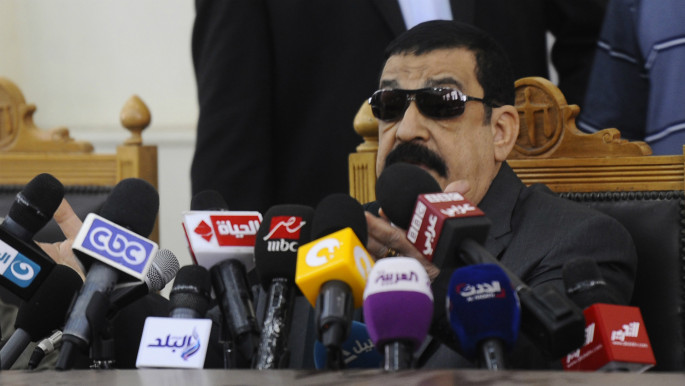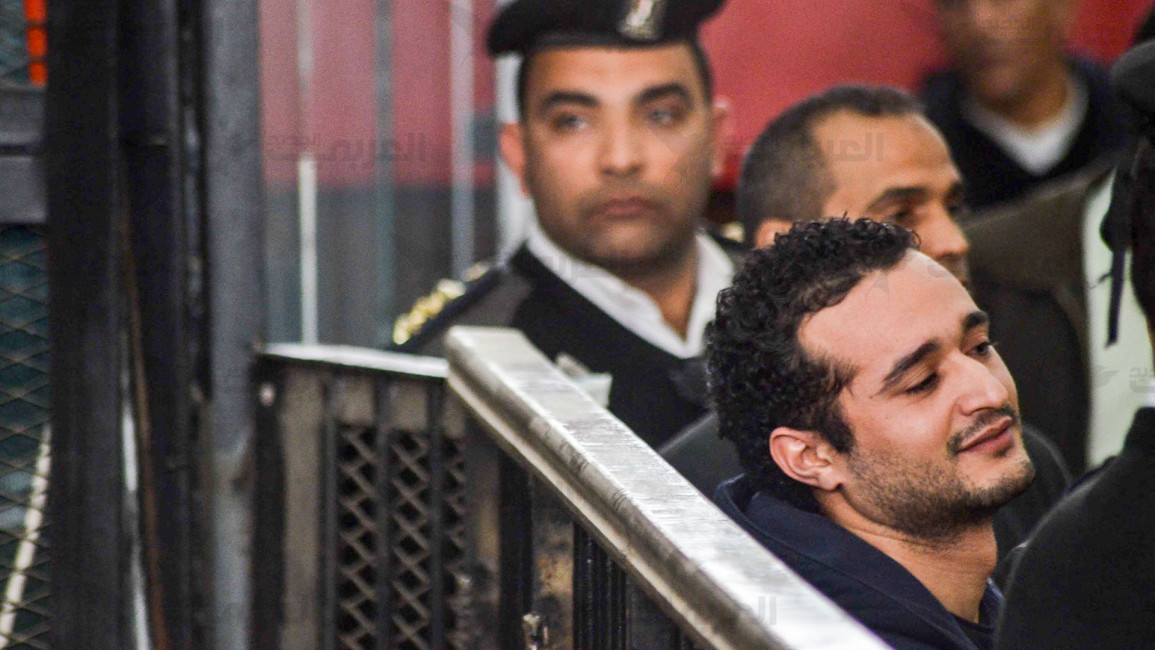Egyptian revolutionaries jailed for life in mass sentencing
Thirty-nine others, all minors, were jailed for 10 years.
The verdict, which can be appealed, is the harshest delivered so far against non-Islamist activists amid a government crackdown on opponents overseen by President Abdel Fattah al-Sisi.
At Wednesday's hearing, all 269 defendants were convicted of taking part in clashes with security forces near Cairo's Tahrir Square in December 2011, a judicial official told the AFP news agency.
They were also found guilty of assaulting security forces and setting alight government buildings, including a cultural centre founded in 1798 by Napoleon Bonaparte that contained more than 200,000 books.
A life sentence in Egypt is 25 years.
The defendants were also ordered to pay a combined fine of $2.2 million.
Douma, 26, rose to prominence during the 2011 revolution that drove Mubarak from power and was also a key protest leader against Morsi.
 |
|
| Shehata has been involved in several mass trials [Getty] |
On Wednesday, dressed in a prison uniform, Douma was the sole defendant present in a metal cage inside the courtroom.
All defendants except for Douma were tried in absentia, as the authorities had released the others earlier ordering them to be present as and when required.
As the verdict was read out, Douma clapped his hands, angering Judge Mohamed Negi Shehata.
"You are not in Tahrir Square. Behave yourself and don't talk too much or I'll give you three more years" for contempt of court, the judge said.
Douma is already serving three years for violating a law banning protests, and was also given a three-year sentence at a previous hearing of the current trial for insulting the judiciary.
Defence lawyer Sameh Samir criticised Wednesday's ruling.
"The judge has been biased against the defendants and their lawyers since the start of the trial," Samir said.
"He referred the defence lawyers to prosecution, he barred us from attending the hearings and now he has issued an unprecedented verdict in Egypt's history."
| The judge has been biased against the defendants and their lawyers since the start of the trial. Defence lawyer Sameh Samir. |
Washington condemned the verdict.
"Mass trials and sentences run counter to the most basic democratic principles and due process under the law," said State Department spokeswoman Jen Psaki, adding it "seems impossible that a fair review of evidence and testimony could be achieved under these circumstances".
Hundreds of Muslim Brotherhood members, who supported Mubarak's successor, Mohamed Morsi, have been sentenced to death after often speedy trials described by the UN as "unprecedented in recent history".
The judge in Wednesday's hearing, Mohamed Shehata, has presided over many of the mass trials.



